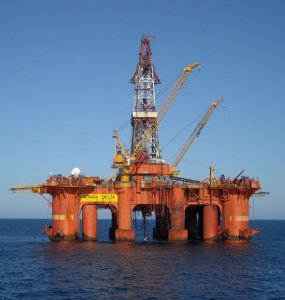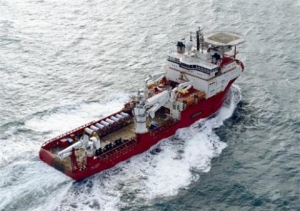Customer: Maersk Oil
GS-Hydro solution: Major pipework replacement for Floating Production, Storage and Offloading (FPSO) vessel GPIII’s Turret Bearing Control System (TBCS)
Year: 2016
Segment: Offshore
GS-Hydro UK Ltd. the global leader in non-welded pipework solutions and headquartered in Sunderland, England, are pleased to announce, through their Aberdeen facility, the completion of a major pipework replacement project on Maersk Oil’s Floating Production, Storage and Offloading (FPSO) Vessel, GPIII.
The project, the first to fully utilise GS-Hydro’s newly developed replacement solution, included all the existing pipework and system components on the GPIII’s Turret Bearing Control System (TBCS).
GS-Hydro’s innovative replacement solution while TBCS system was ‘live’
Through the utilisation of the innovative replacement solution GS-Hydro were able to offer a complete, one-stop package of services ranging from the initial site-survey through to the final system commissioning. Having the capability to offer a full project management, design and modelling package, material procurement, spool fabrication and supply, system destruct and installation and full flushing and pressure testing services, GS-Hydro were able to offer a complete package of in-house services to develop and complete the project.
However, what made the project unique was that the TBCS, one of the vessel’s most important and safety-critical systems, was kept ‘live’ and fully operational throughout the offshore period of the project.
Through the utilisation of GS-Hydro’s non-welded technology and ‘cold-work’ capability the pipework could be replaced with the system fully functioning and with virtually no interruption to production or the vessel’s operational capability.
Furthermore, by approaching the project using an integrated approach, GS-Hydro were able to develop, propose and implement solutions which met with both on- and offshore technical requirements. This allowed the development of work packs that facilitated a smooth and cohesive approach that realised the potential choke points within the project prior to formulating solutions. These were then agreed by all before being incorporated into the planning, risk-assessment and QHSE management systems.
Cost savings through GS-Hydro’s solution
An integrated and detailed planning process allowed the use of more readily available materials and the development of a complete stainless steel system rather than a mixed carbon/stainless system as originally fitted. This decision resulted in a significant cost saving and enhances the future life and reliability of the pipework during ongoing operational use.
All three of GS-Hydro’s non-welded technology, the GS-90⁰ Flaring, the GS-37⁰ Flaring and the GS-Retain Ring, as well as additional non-hot work processes were utilised to complete the project during the offshore phase. Whilst around 85% of the required spools were bent and fabricated onshore, GS-Hydro has the capability to supply a fully equipped workshop to site. This allows spool tie-ins to be fabricated onsite thereby minimising both time and offshore costs. In total there were some 500 spools manufactured and fitted to the TBCS as well as the replacement of all valves and other ancillary system components.
GS-Hydro’s Project Manager, Duncan Griffiths, commented: “Through the utilisation of the recently developed replacement solution GS-Hydro have managed to complete this major project under budget and within a shorter than anticipated timespan with no compromise to quality standards and no lost-time incidents. Most importantly the ability to keep the vessel on station and in full production throughout the project has produced huge cost benefits for the client”.
He added, “This project has demonstrated what can be achieved when the client/contractor interface comes together to integrate new technology, improved methodologies and a desire to move away from the recognised norm”.
Setting new industry standards
This project being the first of its kind in its breadth and complexity in the North Sea has established a new set of parameters for industries where ‘hot-work’ can be problematical. The use of GS-Hydro’s replacement solution combined with their class leading technologies offers clients the potential to carry out major pipework replacement, system upgrades and module refurbishment projects without the need for major plant/asset outages or shutdowns. Additionally, because this process does not require operational disruption, the work can be performed with the traditional shut-down periods thus reducing the pressure on the platform or vessel accommodation resources.




